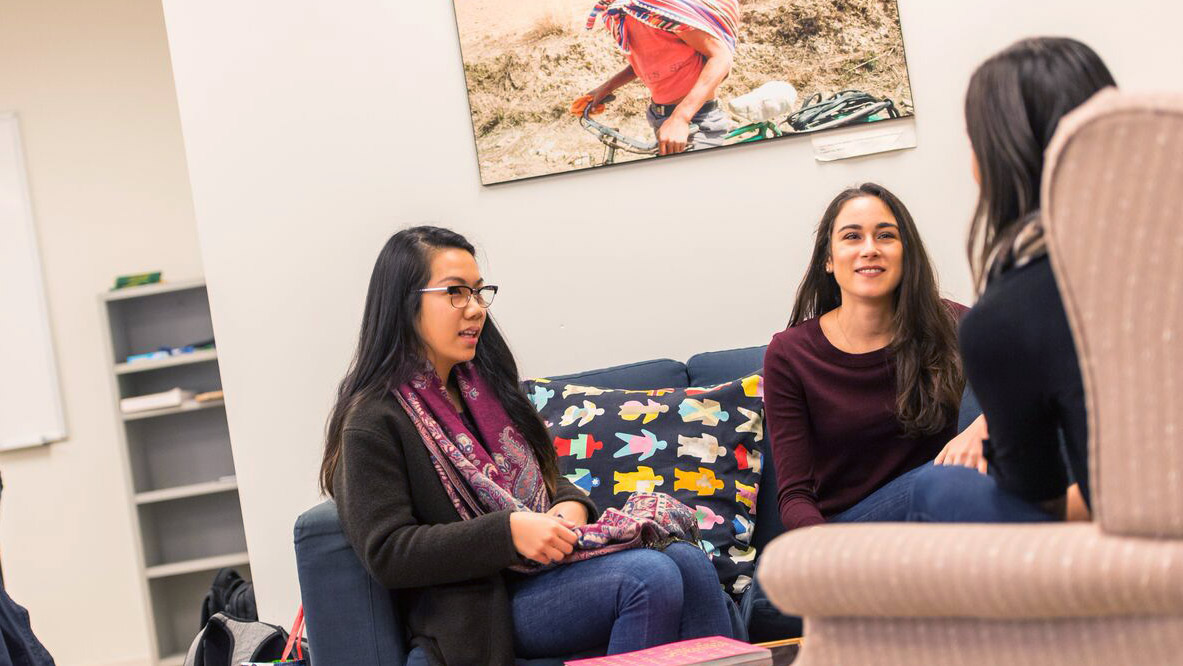

Being an Arts student at UBC means you have an incredible opportunity to shape your degree around what matters most to you. With so many courses and programs to explore, you may be wondering where to begin.
You’re not alone in feeling this way. We asked a few Arts alumni (including some former Arts Peer Advisors) to share their best tips for success. Their tips can help you plan your degree with purpose and feel more confident about your next steps.
Jump ahead:
- Learn about terminology at UBC
- Design your degree around your goals
- Discover your first-year study options
- How to choose your major
- How to declare a major
- How to combine multiple programs
- How many credits to take
- Degree requirements
- How to change your program
- Advising resources
Learn about terminology at UBC
“At UBC, a session refers to either the Winter or Summer period when classes are offered. The Winter session is split into two terms, and a 3-credit class is a course that runs over one term, while 6-credit courses span both terms.
When browsing through UBC courses in Workday, you’ll see listings like: PSYC_V 101 001. Here’s what that means:
- PSYC_V is the subject code. In this case, Psychology. The “V” means it is a UBC Vancouver course.
- 101 is the course number. 101 refers to a first-year level course, in this case “Introduction to Biological and Cognitive Psychology”
- 001 is the course section number. It tells you when and where this section of the course takes place, and who’s teaching it.
Understanding this format will make it easier to read the course schedule and build your timetable.
– Gabi Fisher, former Arts Peer Advisor
Design your degree around your goals
“The Faculty of Arts offers many different programs to help you create a personalized educational experience. You can choose a major that reflects your interests, add options like Arts Co-op, Master of Management or Science Po, and even build in a minor to broaden your learning. If you want to go deeper into a subject, consider an Honours program. Think about your passions and goals and then spend time combining different program options to see what best supports your future plans.”
– Alana Shaw BA ‘24, former Arts Peer Advisor
Discover your first-year study options
“I chose the Coordinated Arts Program (CAP) in my first year because I thought it would help me adjust from smaller high school classes to larger university lectures. Being a part of the same cohort of peers throughout the year helped me to build a sense of community. I also had access to the Irving K. Barber Study Space, which has a quiet study area with plants and lots of natural light. Each CAP stream includes three subjects per term, taught with an interdisciplinary approach, which made it easier for me to see connections across my courses, and stay engaged.”
– Muthaira Abid BA ‘23, former Arts Peer Advisor
“I chose Arts One because it provided me with a positive and supportive transition into university. The smaller seminars and tutorials really helped ease my feelings of isolation, and helped me get to know my fellow first-year Arts students. I was introduced to a wide range of classic and contemporary works, many of which I continued to reflect on, and draw connections from throughout my undergraduate degree, and even in graduate school. I also appreciated the exclusive access to a dedicated study space for students in first-year programs, support from program advisors, and the opportunity to publish in the student journal: ONE.”
– Kelly Chan, Arts One alumna
How to choose your major
“Choosing your major might seem like a huge decision, and that’s totally valid! It will definitely take up a significant portion of your credit requirements, meaning you’ll be taking a lot of courses in that subject. I suggest trying to balance practicality with interest. Since you’ll be spending so much time in this discipline, make sure it’s something you actually enjoy and can see a future for yourself in. I majored in English Literature because I knew I would enjoy it and knew I would likely do well in it. I earned a high GPA and gained an abundance of reading and writing skills that helped me get into law school.”
– Farzeen Ather BA ‘23, former Arts Peer Advisor
How to declare a major
“You should declare a major before registering for your third year (usually after completing at least 54 credits). All self-declarable majors can be added once you have second year standing (27 credits).
Depending on the program, you may be able to self-declare, or you might need to apply to a competitive major. These programs often have specific application requirements and deadlines, so it’s a good idea to check the department’s website early. Look out for any prerequisites you’ll need to complete before declaring. You can declare by following the instructions here.”
– Odin Schubert-Rasmussen BA ‘22, former Arts Peer Advisor
How to combine multiple programs
“Deciding which programs to combine can be tricky. For me, it was based on a mix of my high school interests and the variety of courses I took in first year. My double-major in Psychology and French allowed me to explore both my passions—social psychology and languages—which offered me a more holistic lens to consider how language interacts with marginalized social identities. If you’re considering combining programs, explore a variety of courses and pick something you truly enjoy. Adding a second program of study is a great way to personalize your degree and make interdisciplinary connections.”
– Rachel Chen BA ‘24, former Arts Peer Advisor
How many credits to take
“I was able to earn 24 transfer credits in high school before I started at UBC, which allowed me to take a lighter course load in my first year. That gave me space to gain work experience through part-time jobs and take care of my mental health. I made sure to take a minimum of 18 credits each winter session so I could stay eligible for student housing and apply for a post-graduate work permit. I finished my degree in 4.5 years and was able to go at my own pace. How many credits you take depends on a variety of factors, so choose what works best for you.”
– Muthaira Abid BA ‘23, former Arts Peer Advisor
Take note of degree requirements
“Degree requirements can feel overwhelming when you’re new to university and not sure what you want to do yet. The Academic Calendar is a good place to start. There, you can find degree requirements, credit regulations, program options, and any other academic information you might need. Look through the Faculty of Arts requirements pages, as well as your intended major’s requirements pages to get a clearer sense of how to prepare for your degree. Arts Academic Advisors can also help you plan. They are a great resource if you need support with course planning or just need someone to talk through your options with.”
– Alana Shaw BA ‘24, former Arts Peer Advisor
How to change your program
“At some point, you may decide to switch to a different degree program. That’s totally okay! Internal transfer to another UBC degree program can be done through the Change of Degree Program process. Most undergraduate degree programs have specific requirements and steps to follow. Some, like the Bachelor of Fine Arts or Bachelor of Commerce, have additional admission requirements, so check the websites of each faculty and department for more information and plan ahead!”
– Jinjoo Lee, Academic Advisor
Advising resources for you
“Academic Advisors can support you with degree planning, help you understand UBC’s policies and procedures, and offer guidance on meeting your degree requirements, staying on track, and working toward graduation. They’re also here to connect you with the right resources for any part of your academic and university experience. If you’re not sure where to start, come chat with us at Arts Advising!
When it comes to questions about your specialized program of study (honours, major, and minors), Department Advisors are your guides. They can help you with program requirements, courses, and things like waiting lists or program-specific processes.”
– Sophie Lee, Academic Advisor
Being a student in the Faculty of Arts is exciting and we’re so glad you’ve chosen UBC. Enjoy your studies and remember: your Arts advisors are here to help you every step of the way.


